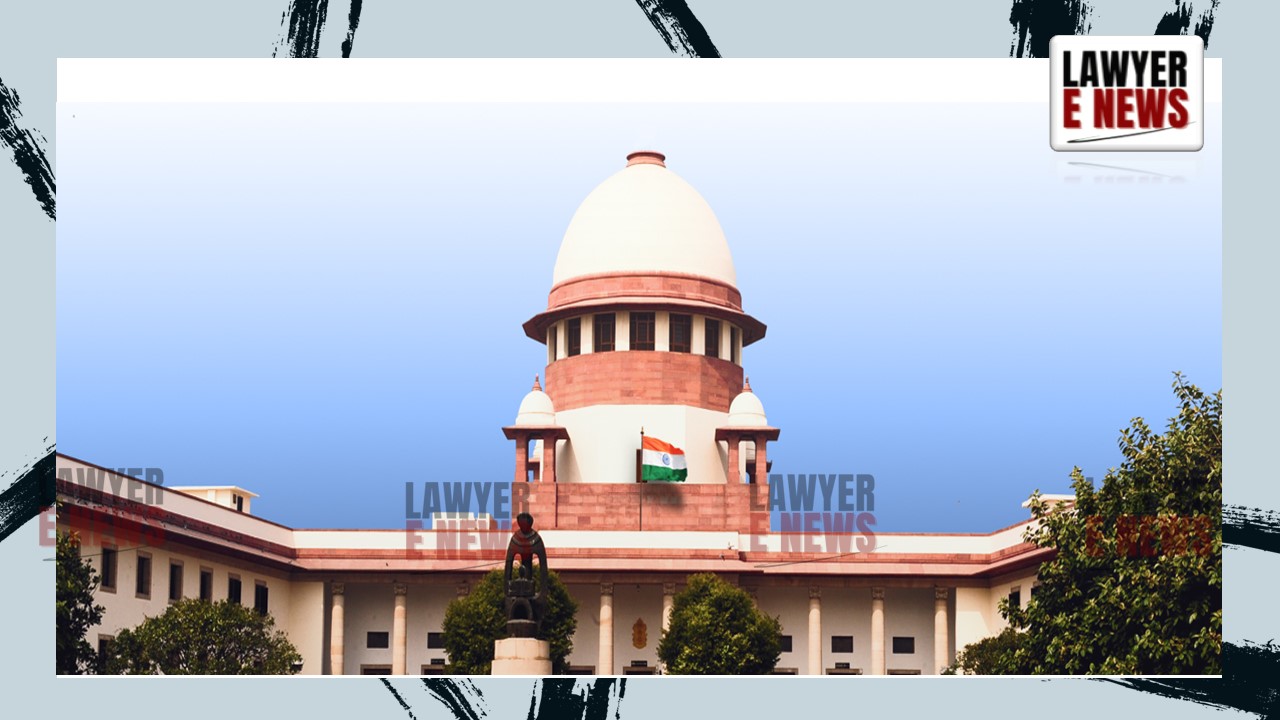-
by Admin
15 February 2026 5:35 AM



Supreme Court of India upheld the denial of a Scheduled Caste certificate to a petitioner who claimed entitlement based on her reconversion to Hinduism after being born into a Christian family. The decision, delivered by a bench comprising Justices Pankaj Mithal and R. Mahadevan, emphasized that conversion and reconversion must adhere to stringent legal and social criteria to qualify for caste-based reservation benefits. The judgment reaffirmed constitutional principles, clarifying that fraudulent exploitation of affirmative action schemes undermines their core purpose.
The petitioner, born to Christian parents, argued that her family originally belonged to the Valluvan caste, recognized as a Scheduled Caste under the Constitution (Pondicherry) Scheduled Castes Order, 1964. She claimed to have reverted to Hinduism and sought the Scheduled Caste certificate for public employment. However, her claims were rejected by the Tahsildar and District Collector, and the High Court of Madras, which found that she failed to provide evidence of community acceptance or substantial proof of reconversion.
The Court addressed the critical question of whether a reconverted individual could claim the benefits of Scheduled Caste status. Justice R. Mahadevan, writing for the bench, observed that Christianity does not recognize caste distinctions. Thus, upon conversion, the petitioner severed ties with her original caste identity. The Court remarked, "Baptism into Christianity eclipses caste membership. Without credible evidence of reconversion, including community acceptance, the petitioner cannot reclaim Scheduled Caste status."
The Court scrutinized the petitioner’s motives, finding that the primary intent behind her claim appeared to be accessing reservation benefits rather than a genuine return to her ancestral faith. Justice Mahadevan emphasized, "Conversion merely for the purpose of reservation constitutes a fraud on the Constitution. This undermines the very ethos of affirmative action, which aims to uplift historically marginalized communities."
Analyzing the requirements for reconversion, the Court reiterated principles laid down in earlier cases, including S. Rajagopal v. C.M. Armugam (1969). It held that reconversion must be accompanied by public declarations, rituals, and unequivocal acceptance by the caste community. The petitioner’s evidence failed to demonstrate these elements. Justice Mahadevan observed, "The lack of tangible proof of community acceptance and the petitioner’s conflicting religious practices nullify her claim."
Another aspect examined was the issuance of prior Scheduled Caste certificates to the petitioner and her family members. The Court dismissed these as improperly granted, noting that procedural irregularities in the past cannot validate present claims. "An illegality cannot be perpetuated. The integrity of the constitutional framework demands rectification, not perpetuation, of such errors," Justice Mahadevan said.
The judgment extensively discussed the constitutional framework, particularly Article 341, which empowers the President to define Scheduled Castes. Benefits are restricted to individuals practicing Hinduism, Sikhism, or Buddhism unless explicitly extended to other religions. Citing the landmark decision in Soosai v. Union of India (1986), the Court underscored that these restrictions aim to preserve the targeted nature of affirmative action policies.
The Court also addressed the broader implications of dual religious identity. Justice Mahadevan stated, "Religious identity must be singular and sincere. Claims of reconversion must be rooted in genuine belief, not opportunistic motives. Allowing dual claims erodes public trust and violates constitutional values."
The ruling highlights the judiciary’s role in upholding the sanctity of reservation policies and preventing their misuse. By affirming that reconversion requires rigorous proof and genuine intent, the Supreme Court has reinforced the integrity of affirmative action as a tool for social justice.
In dismissing the petition, the Court upheld the principles of constitutional clarity and societal fairness. The judgment serves as a reminder that while affirmative action is essential for redressing historical injustices, it must be safeguarded from exploitation. By doing so, the Court reaffirmed its commitment to the foundational ideals of equality and justice enshrined in the Constitution.
Date of decision: 26 November 2024
